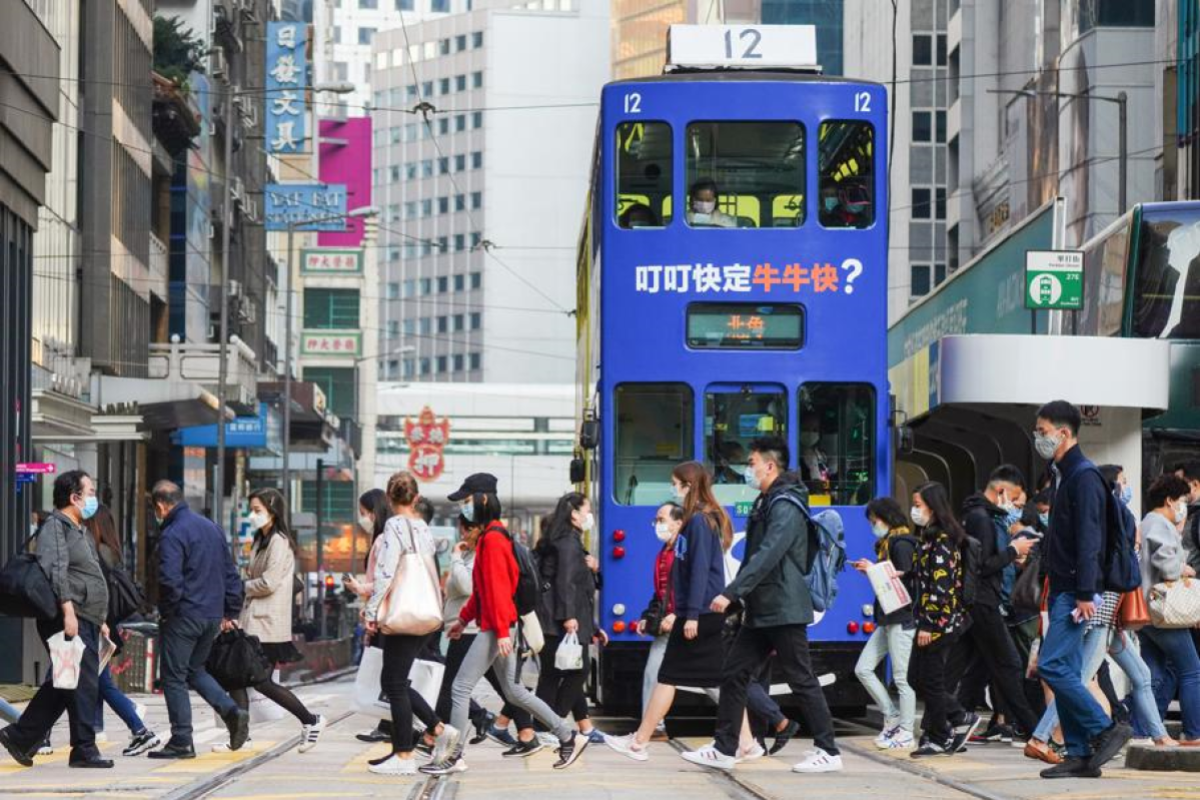
- The city is facing a potential brain drain as the national security law and work-life balance drive under-35s to leave
- Top destinations include Britain, Australia, New Zealand, Canada and the US
 A new survey said almost a quarter of university-educated Hongkongers under the age of 35 planned to leave the city to work. Photo: SCMP/ Sam Tsang
A new survey said almost a quarter of university-educated Hongkongers under the age of 35 planned to leave the city to work. Photo: SCMP/ Sam TsangAccording to a new survey, Hong Kong is facing a potential brain drain as a quarter of the city’s university-educated under-35s said they were planning to leave within the next five years.
The study, which was conducted by one of the city’s biggest youth organisations, also showed that some 16 per cent of those who wanted to leave the city for work said they had no intention of ever coming back, while another 12.6 per cent said they would only consider returning after securing a foreign nationality.
The online poll, released on Sunday, comes at a time when some foreign countries are easing their immigration schemes for Hongkongers in response to the sweeping national security law imposed by Beijing, which some say will curb the rights and freedoms of residents.
Britain’s citizenship offer for Hong Kong, explained
Youth Ideas, a research centre under the Hong Kong Federation of Youth Groups, polled 1,135 of its members aged 34 or below, with graduate or postgraduate education, between January 16 and February 2 this year. About two-thirds of the respondents were making HK$20,000 or more a month, with 14.8 per cent making HK$40,000 or more a month.
Established in 1960, the federation is the city’s largest youth service organisation, with a membership of more than 300,000. It is funded mostly by government subsidies as well as grants from charities and private and corporate donations.
The survey, “Tackling Hong Kong’s Brain Drain”, found that 24.2 per cent of respondents said they had plans to get a job outside Hong Kong in the next five years. The top places were Britain, Australia and New Zealand, Europe, and the Americas.
Many Hongkongers named Australia as a place they would like to relocate to.
Major reasons for choosing to work elsewhere included “work-life balance” (41.5 per cent), “emigration plan” (36.7 per cent), and “social and political stability” (34.9 per cent).
Of those polled, 15.8 per cent said they had no plans to return to Hong Kong, while another 12.6 per cent said they might consider returning after getting permanent residency overseas or securing a foreign nationality.
Asked what would make them consider returning or staying to work here, the top three factors cited were “attractive pay” (41.6 per cent), “better protection of personal freedoms” (38.1 per cent), and “satisfactory development opportunities” (35.8 per cent).
Canada offers new work visa for Hongkongers
According to the 2019 Labour and Welfare Bureau report on manpower projection to 2027, there would be an overall manpower shortfall of 169,700 by 2027. Further analyses showed there would be a shortage of 34,600 skilled workers with university education by 2027.
Amy Yuen Siu-man, the federation’s researcher, urged the government to act to stop a potential brain drain.
One way to do this would be for local companies to change their corporate cultures to accommodate remote working.
“Many Hong Kong employers are still sticking to the old ways of running business, like requiring staff to stay in the office from 9am to 5pm to work. If they do not make changes, it will be hard for them to attract talent.”